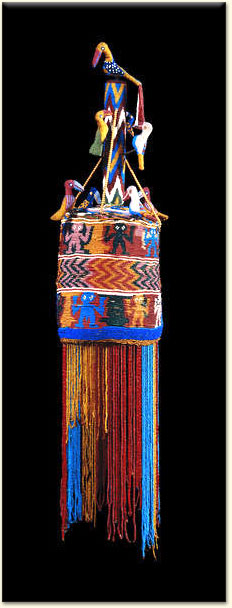The Wall
Hawaiians call Mark Zuckerberg 'the face of neocolonialism' over land lawsuits
Attorneys for Facebook’s CEO have filed suits against hundreds of Hawaiians centered around his 700-acre Kauai estate, alarming neighbors
https://www.theguardian.com/technology/2017/jan/23/mark-zuckerberg-hawaii-land-lawsuits-kauai-estate
A few days after Christmas, Mark Zuckerberg shared a series of photographs of his family at their $100m, 700-acre property in Kauai. The Facebook CEO and his wife “fell in love with the community and the cloudy green mountains”, he wrote, and decided to “plant roots and join the community ourselves”.
Two days later, Zuckerberg’s lawyers filed lawsuits against hundreds of Hawaiians who may own an interest in small parcels within the boundaries of Zuckerberg’s estate. The “quiet title” suits, first reported by the Honolulu Star-Advertiser, are used to clarify the often complicated history of land ownership in Hawaii and can result in owners being forced to sell their land at auction. In some cases, defendants are even required to pay the legal fees of the plaintiff – in this case, the world’s fifth richest man...
We have talked so much about privacy over the recent time that for me the word has lost definition; it has become hazy with widespread use and application to an enormous range of phenomena. SO I just stopped when I read this and just started thinking about privacy - privacy not as defined by the legal system, but as it occurs when we are confronting the world.
This reminds me of Martin Buber's Ich und Du - I and Thou, and Kierkegaard and dozens of other writers and Heidegger.
I think we do not stand apart from the world and experience it, rather we open a door in the wall of our being and present ourselves to the world, which world in turn presents itself to us. Our experience of the environment is a mutual engagement of an intimate sort.
When I spoke of love being a private madness, this is an echo of this process: in love we open ourselves to a lover, to a parent, to a child, to a book, a movie, a piece of music.
It is easy for us to sort of make a case for a parent, say, reciprocating our opening engagement, but it is certainly more difficult for us to imagine how a piece of music open itself to us. We can imagine how we enjoy music, but how do we imagine music "enjoying" us?
Good point.
A lot depends upon the capabilities of the individual.
Someone who is vile, suspicious, untrusting, and dirty may indeed find it difficult for a lover, for example, to open up to them.
I am musically illiterate. How can music open itself to me? I find that films could be said to do so, and books, too, but not music. A musician, however, who applies themselves to a piece of music may indeed very easily transform that music. As a close analogy, consider the history of the staging of Wagner's operas and the musical interpretation of them: there is a history of evolution and change.
But one must be able to communicate.
We must be able to communicate musically to say that music itself opened to us and was in a primary engagement with us.
We must be able to love before we can say that another being could engage in a primary engagement of intimacy.
And then there is the madness of such intimacy....
There is the madness of eros, which we speak of "behind closed doors".
There is the "madness" of Socrates and his intellection when he speaks of his daemon.
There is the madness of the othernes-of-mind which we inhabit when fully engaged in a pursuit which fills us with the Enchantment of body and soul, like a book that cannot be put down, a TV series whose ending fills us with longing of elongation, a prayer to the Virgin which haloes us with a sense of sanctity we strive to recall......
Opening and Closing.
Privacy is very, very mysterious and basic. I shall be thinking of it lots.
--


















No comments:
Post a Comment